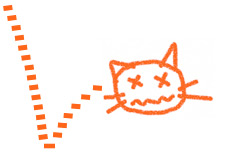|
|
Post by Entendance on Apr 11, 2015 11:32:48 GMT -5
|
|
|
|
Post by Entendance on Apr 15, 2015 4:49:57 GMT -5
"If we find ourselves with a desire that nothing in this world can satisfy, the most probable explanation is that we were made for another world...You don't have a soul. You ARE a soul. You have a body." -C.S. Lewis
"Believe those who seek the truth; doubt those who find it." -Andre Gide
World markets at a glance NOW & Updated Trading VIDEO

|
|
|
|
Post by Entendance on Apr 16, 2015 2:08:24 GMT -5
"The real voyage of discovery consists not in seeking new landscapes but in having new eyes." – Marcel Proust
"If a little dreaming is dangerous, the cure for it is not to dream less but to dream more, to dream all the time." – Marcel Proust
|
|
|
|
Post by Entendance on Apr 21, 2015 3:03:55 GMT -5
|
|
|
|
Post by Entendance on Apr 23, 2015 3:50:49 GMT -5
"A great way to lose money is to not understand yourself and how you're wired cognitively. If you're a deep thinker, you'll lose money sitting at the trading table. If you're a fast thinker, you'll lose money dabbling with investment theses." -Brett Steenbarger, Ph.D.

The eleven emotional hurdles that could be killing your portfolio
1. The Bandwagon Effect: This is the one that causes the most pain in a bubble. It's the idea that it's okay to follow the herd because so many other people believe in it. It's irrational because it places its faith in the safety of numbers, while completely disregarding the fundamentals. Without it, a bubble is impossible.
2. Loss Aversion: People to have a strong preference for avoiding losses over acquiring gains. It's the fear that puts them on the sidelines to stay.
3. Disposition Effect: This is the tendency for investors to lock in gains and ride out losses. It prompts the sale of shares that are rising, while at the same time keeping investors tied to losers for far too long. It's closely tied to loss aversion, since it's the fear of loss that dominates the thinking.
4. Outcome Bias: Judging a decision by its outcome rather than the quality of the decision at the time that it was made. This is what makes investors completely disregard a proper decision if it turns out to be a loss.
5. Sunken Costs Effect: Treating money that has already been spent as more valuable than money that may be spent in the future. It's what helps to build up losses because the investor believes that by selling at a loss he is wasting money. That same money could be put to use elsewhere.
6. Recency Bias: Weighting recent data more heavily than earlier experiences. It's what freezes investors — especially after a series of losses — even though there may be a much longer string of successes in the past.
7. Anchoring: This is the tendency for people to rely too heavily on readily available information when making a decision. Investors often base their decisions on information that may be faulty.
8. Belief in the Law of Small Numbers: This is when investors base their conclusions on a slice of data that is too small. It's the equivalent of making mountains out of molehills, and it blurs reality.
9. Endowment Effect: People tend to value something more once they own it. As in housing, people tend to overvalue what belongs to them. Of course, this only blinds to them to the real value.
10. Disconfirmation Bias: This makes people critical of information which contradicts their beliefs while uncritically accepting information that is in line with them. In short, it's a trap whereby people believe what they want to believe.
11. Post Purchase Rationalization: This when investors persuade themselves through rational argument that a purchase was a good value. Of course, if a decision needs to be rationalized after the fact... it is probably wrong.
Individually, of course, all of these biases are dangerous. Taken together, they are the stuff that bubbles are made of.
Guarding against them in the future may be the one of the best investment decisions you'll ever make.

World markets at a glance NOW & Updated Trading VIDEO
If you like this beach, then you can help your friends locate it by letting them know about Fred & EntendanceInvestors Beach.
Let's all make this place a thriving sheltered Club for excellence, education and information.
|
|
|
|
Post by Entendance on Apr 27, 2015 5:25:18 GMT -5
The conventional view serves to protect us from the painful job of thinking.”
John Kenneth Galbraith

Conquer the Four Fears
Merriam-Webster's dictionary defines fear as "an unpleasant, often strong emotion caused by anticipation or awareness of danger, going on to explain that fear...implies anxiety and usually the loss of courage." This definition of fear is useful in helping define the issues that traders face when coping with fear. The reality is that all traders feel fear at some level, but the key is how we prepare to address our concerns related to taking on risk as a trader. In this article I will review four major fears experienced by traders, and I'll take it a step further by noting how the outcomes of these fears create undesirable trading behaviors. Basically, my aim is to have you walk away with an understanding of these dangers so you can and implement strategies that will address your fears and let you get on with your trading plan. Mark Douglas, an expert in trading psychology, noted in his book, Trading in the Zone, that most investors believe they know what is going to happen next. This causes traders to put too much weight on the outcome of the current trade, while not assessing their performance as "a probability game" that they are playing over time. This manifests itself in investors getting too high and too low and causes them to react emotionally, with excessive fear or greed after a series of losses or wins. As the importance of an individual trade increases in the trader's mind, the fear level tends to increase as well. A trader becomes more hesitant and cautious, seeking to avoid a mistake. The risk of choking under pressure increases as the trader feels the pressure build.
All traders have fear, but winning traders manage their fear while losers are controlled by it. When faced with a potentially dangerous situation, the instinctive tendency is to revert to the "fight or flight" response. We can either prepare to do battle against the perceived threat, or we can flee from this danger. When an investor interprets a state of arousal negatively as fear or stress, performance is likely to be impaired. A trader will tend to ?freeze.? In contrast, when a trader feels the surge of adrenaline but interprets this as excitement or a state of greater alertness before placing a trade, then performance will tend to improve. Many great live performers talk of feeling butterflies just before they go on stage, and how they interpret this as a wake-up call to go out and perform at their highest level. That's clearly a more empowering response than someone who might interpret these butterflies as a reason to run back to his dressing room to get sick! Winners take positive action in spite of fear. Read below for tips to conquer the four major fears in trading:
"Here are the four major fears in trading, and how you can work to handle them:
1. Fear of Loss
The fear of losing when making a trade often has several consequences. Fear of loss tends to make a trader hesitant to execute his trading plan. This can often lead to an inability to pull the trigger on new entries as well as on new exits. As a trader, you know that you need to be decisive in taking action when your approach dictates a new entry or exit, so when fear of loss holds you back from taking action, you also lose confidence in your ability to execute your trading plan. This causes a lack of trust in your method or, more importantly, in your own ability to execute future trades.
Thus, you can see how fear can set in place a vicious cycle of recurring doubt and, in turn, reinforce a traders' lack of confidence in executing new positions. For example, if you doubt you will actually be able to exit your position when your method tells you to get the heck out, then as a self-preservation mechanism you will also choose not to get into new trades. Thus begins the analysis paralysis, where you are merely looking at new trades but not getting the proper reinforcement to pull the trigger. In fact, the reinforcement is negative and actually pulls you away from making a move.
Looking deeper at why a trader cannot pull the trigger, I believe the root stems from a lack of confidence about the trading plan, which then causes the trader to believe that by not trading, he is moving away from potential pain as opposed to moving toward future gain. No one likes losses, but the reality is, of course, that even the best professionals will lose. The key is that they will lose much less, which allows them to remain in the game both financially and psychologically. The longer you can remain in the trading game with a sound method, the more likely you will start to experience a better run of trades that will take you out of any temporary trading slumps.
When you're having trouble pulling the trigger, realize that you are worrying too much about results and are not focused on your execution process. Make sure your have a written plan and then practice executing your plan.
Start with paper trades if you prefer, or consider trading smaller positions to get the fear of losing out of your system and get yourself focused on execution. When in the heat of battle and realizing you need to get in or out of a trade, consider using market orders, especially on the exit. That way you can't beat yourself up for not pulling the trigger on your trade.
Many traders may get too cute with a trade and try to work out of a position at a limit price better than the current market price, hoping they can squeeze more out of a trade. But as famed trader Jesse Livermore advised in the classic book Reminiscences of a Stock Operator by Edwin Lefevre, "give up trying to catch the last eighth." Keep it simple with a market order to exit allows you to bring closure when you need it, which reinforces the confidence-building feelings that come from following your trading plan. In the past when my indicators noted it was time to exit, I have experienced firsthand the pain of not getting filled at my limit, watching the option drop and then placing a new limit back where I should have exited at the market in the first place! Then I have realized I was not going to get filled there either, so I again kept lowering my limit until, in frustration, I placed a market order to exit much lower than I could have closed the position initially. Not only can you feel the pain of loss financially but more importantly, you can chip away at your internal state of confidence and create frustration by not getting filled.
You should be more concerned about avoiding big losses and less concerned about taking small losses. If you can't bear to take a small loss, you will never give yourself an opportunity to be around when a big winning idea comes along, as every trade you enter has the risk of first turning against you for a loss. You must execute by knowing what your risk is in each trade, and define parameters to make sure you can ride favorable trends correctly as well so that your winners will be larger than you losers. And never get stuck in the mindset of hoping a loser will come back to "breakeven," as that is one of the trader's most deadly mental fantasies. Billions of dollars have been lost by technology investors hoping their stocks would bounce back in recent years to allow them to escape the downtrend. That only led to even greater losses in most cases. That's how a short-term trader can become a long-term investor unintentionally, and that is a position in which you never want to put yourself.
Ask how well you trust yourself to execute your trading plan. You want to judge your effectiveness based on how well you get in and out of the market when your method gives entry and exit signals. You'll need to be decisive, not hesitant, know in your heart that your method is well tested and that your risk is low compared to your likely reward. In other words, you must be fully prepared before you go into the heat of battle during a trading day. You need to know where you will enter and where you will exit if you are a discretionary trader. Or you need to know what system you are following and be prepared to enter and exit as the system dictates. This keeps you disciplined and focused on following a process that can generate favorable results over time.
2. Fear of Missing Out
Every trend always has its doubters, but I often notice that many skeptics of a trend will slowly become converts due to the fear of missing out on profits or the pain of losses in betting against that trend. The fear of missing out can also be characterized as greed of a sorts, for an investor is not acting based on some desire to own the security - other than the fact that it is going up without him on board. This fear is often fueled during runaway booms like the technology bubble of the late-1990s, as investors heard their friends talking about newfound riches. The fear of missing out came into play for those who wanted to experience the same type of euphoria.
When you think about it, this is a very dangerous situation, as at this stage investors tend essentially to say, "Get me in at any price - I must participate in this hot trend!? The effect of the fear of missing out is a blindness to any potential downside risk, as it seems clear to the investor that there can only be gains ahead from such a "promising" and "obviously beneficial" trend. But there's nothing obvious about it.
We remember the stories of the Internet and how it would revolutionize the way business was done. While the Internet has indeed had a significant impact on our lives, the hype and frenzy for these stocks ramped up supply of every possible technology stock that could be brought public and created a situation where the incredibly high expectations could not possibly be met in reality. It is expectation gaps like this that often create serious risks for those who have piled into a trend late, once it has been widely broadcast in the media to all investors.
3. Fear of Letting a Profit Turn into a Loss
I get many more questions from subscribers asking if it is time to take a profit than I do subscribers asking when they should take their loss. This represents the fact that most traders do the opposite of the "let profits run, cut losses short" motto: they instead like to take quick profits while letting losers get out of control. Why would a trader do this? Too many traders tend to equate their net worth with their self-worth. They want to lock in a quick profit to guarantee that they feel like a winner.
How should you take profits? Should you utilize a fixed target profit objective, or should you only trail your stop on a winning trade until the trend breaks?
Those who can accept more risk should consider trailing a stop on their trending position, while more conservative traders may be more comfortable taking profits at their target objective. There is another alternative as well, which is to merge the two concepts by taking some profits off the table while seeking to ride the trend with a trailing stop on the remaining portion of the position.
When I trade options, I usually recommend taking half of the position off at a double or more, and then following the half position still open with a trailing stop. This allows you to have the opportunity to ride my best trading ideas further, as these are the trades where I am mostly likely to continue being right. Yet, I am also able to get the initial capital at risk back in my pocket, which frees me from worrying about letting a profit turn into a loss; I am guaranteed a breakeven even if the other half position were to go to nothing overnight. My general rule for the remaining half position is to exit if it reaches my trailing stop of half its maximum profit on an end-of-day closing basis, or scale out of the remaining half position every time it doubles again.
I'm also a big fan of moving your stop up to breakeven relatively quickly once the position starts to move in your favor, by about five percent on a stock or by roughly 25 percent on the option. It is also critical to recognize the impact of time spent waiting for a position to move. If you are not losing but not yet winning after several trading days, there are likely better opportunities elsewhere. This is known as a "time stop," and it will get your capital out of non-performers and free it up for fresher trading ideas.
4. Fear of Not Being Right
Too many traders care too much about being proven right in their analysis on each trade, as opposed to looking at trading as a probability game in which they will be both right and wrong on individual trades. In other words, their overall method will create positive results.
The desire to focus on being right instead of making money is a function of the individual's ego, and to be successful you must trade without ego at all costs. Ego leads to equating the trader's net worth with his self-worth, which results in the desire to take winners too quickly and sit on losers in often-misguided hopes of exiting at a breakeven.
Trading results are often a mirror for where you are in your life. If you feel any sort of conflict internally with making money or feel the need to be perfect in everything you do, you will experience cognitive dissonance as you trade. This means that your brain will be insisting that you cannot exit a trade at a loss because it ruins your self-image of perfection. Or if you grew up and feel guilty about having money, your mind and ego will find a way to give up gains and take losses in the markets. The ego's need to protect its version of the self must be let go in order to rid ourselves of the potential for self-sabotage.
If you have a perfectionist mentality when trading, you are really setting yourself up for failure, because it is a given that you will experience losses along the way in trading. Again, you have to think of trading as a probability game. You can't be a perfectionist and expect to be a great trader. If you cannot take a loss when it is small because of the need to be perfect, then the loss will often times grow to a much larger loss, causing further pain for the perfectionist. The objective should be excellence in trading, not perfection.
In addition, you should strive for excellence over a sustained period, as opposed to judging that each trade must be excellent. The great traders make mistakes too, but they are able to keep the impact of those mistakes small, while really riding their best ideas fully.
For the trader who is dealing with excessive ego challenges (yet, who wants to admit it?), this is one of the strongest arguments for mechanical systems, as you grade yourself not on whether your trade analysis was right or wrong. Instead you judge yourself based on how effectively you executed your system's entry and exit signals. This is much easier for those traders who want to leave their egos at the door when they start to trade. Additionally, because we are raised in a highly competitive culture, the perception of a contest or competition will also bring out your ego's desire to win and beat others.
You will be better off seeing trading as a series of opportunities that will become apparent to you, and your task is to create a plan that finds opportunities with potential rewards that are several times greater than the risks you incur.
Be sure you are writing down your reasons for entering each trade, as the ego will play tricks and come up with new reasons to hang on to losing positions once the original reasons have evaporated. One of our survival mechanisms is remembering the good and omitting the bad in our minds, but this is dangerous in trading. You must acknowledge the risk and use a stop on every trade to admit when the analysis is no longer timely. This helps prevent undesirable situations where you get stuck in a position because you did not adhere to your original stop. This is a bad use of capital being tied up in an under-performing position, when there are likely to be many better opportunities elsewhere. Trading without stops is an ego-driven approach that hopes to avoid accountability for a losing trading idea. This is an unacceptable behavior to the successful trader, who knows he must limit risk with stops to stay in the game for the next trading opportunity.
In summary, your trading plan must account for the emotions you will be prone to experience, particularly those related to managing fear. As a trade, you must move from a fearful mindset to mental state of confidence. You have to believe in your ability as well as the effectiveness of your plan to take profits that are larger than the manageable losses. This builds the confidence of knowing that you are on the right track. It also makes it easier to continue to execute new trades after a string of losing positions. Psychologically, that's the critical point where many individuals will pull the plug, because they are too reactive to emotions as opposed to the longer-term mechanics of their plan. If you're not sure if you can make this leap, know that you can if you start small.
Too many investors have an "all-or-none" mentality. They're either going to get rich quick or blow out trying. You want to take the opposite mentality - one that signals that you are in this for the longer haul. This gives you "permission" to slowly get comfortable and to keep refining your plan as you go. As you focus on execution while managing fear, you realize that giving up is the only way you can truly lose. You will win as you conquer the four major fears, to gain confidence in your trading method and, ultimately, you will gain even more confidence in yourself."
This article by Price Headley was originally published in Stock Futures and Options Magazine
If you like this beach, then you can help your friends locate it by letting them know about Fred & EntendanceInvestors Beach.
Let's all make this place a thriving sheltered Club for excellence, education and information.
|
|
|
|
Post by Entendance on Apr 29, 2015 5:13:27 GMT -5

Suave, mari magno turbantibus aequora ventis
e terra magnum alterius spectare laborem;
non quia vexari quemquamst iucunda voluptas,
sed quibus ipse malis careas quia cernere suavest.
suave etiam belli certamina magna tueri
per campos instructa tua sine parte pericli;
sed nihil dulcius est, bene quam munita tenere
edita doctrina sapientum templa serena,
despicere unde queas alios passimque videre
errare atque viam palantis quaerere vitae,
certare ingenio, contendere nobilitate,
noctes atque dies niti praestante labore
ad summas emergere opes rerumque potiri.
"Pleasant it is, when over the great sea the winds shake the waters,
To gaze down from shore on the trials of others;
Not because seeing other people struggle is sweet to us,
But because the fact that we ourselves are free from such ills strikes us as pleasant.
Pleasant it is also to behold great armies battling on a plain,
When we ourselves have no part in their peril.
But nothing is sweeter than to occupy a lofty sanctuary of the mind,
Well fortified with the teachings of the wise,
Where we may look down on others as they stumble along,
Vainly searching for the true path of life." -Lucretius
|
|
|
|
Post by Entendance on Jun 3, 2015 17:36:27 GMT -5
*** “Revolution is Coming” – The Top 20 Responses to Jon Hilsenrath’s Idiotic WSJ Article “Sanctity! It must be won at the point of a sword!”
*** Do you want to be a saint? Be prepared to be a warrior. There is no other way forward.
If we keep doing what we've always done, we'll keep getting what we've always gotten.
"Nothing in life is to be feared, it is only to be understood." – Marie Curie

"If we don't change, we don't grow. If we don't grow, we are not really living. Growth demands a temporary surrender of security." – Gail Sheehy
"Inspiration is a guest that does not willingly visit the lazy." – Pyotr Tchaikovsky
If you like this beach, then you can help your friends locate it by letting them know about Fred & EntendanceInvestors Beach.
Let's all make this place a thriving sheltered Club for excellence, education and information.
|
|
|
|
Post by Entendance on Jun 10, 2015 4:35:51 GMT -5
Dr. Paul Craig Roberts: "...Wherever the West has an imprint, the populations are exploited. Exploitation of the many for the few is the Hallmark of the West, a decrepit, corrupt, and collapsing entity."
|
|
|
|
Post by Entendance on Jun 12, 2015 15:50:48 GMT -5
More people would learn from their mistakes if they weren't so busy denying them.
- Harold J. Smith
Volatility-products + prayer

If you like this beach, then you can help your friends locate it by letting them know about Fred & EntendanceInvestors Beach.
Let's all make this place a thriving sheltered Club for excellence, education and information.
|
|
|
|
Post by Entendance on Jun 14, 2015 6:35:50 GMT -5

“Class is an aura of confidence that is being sure without being cocky. Class has nothing to do with money. Class never runs scared. It is self-discipline and self-knowledge. It's the sure-footedness that comes with having proved you can meet life. ” ― Ann Landers

***SOCAPRI
***Stop Wasting Time!! (Cuz You’ll Be DEAD Before You Know It)
On the Shortness of Life
"Watch your thoughts; they become words. Watch your words; they become actions. Watch your actions, they become habits. Watch your habits, they become character. Watch your character; it becomes your destiny." - Frank Outlaw
 Maagaa Island in Maldives, E's spiritual retreat shelter
If you like this beach, then you can help your friends locate it by letting them know about Fred & EntendanceInvestors Beach.
Let's all make this place a thriving sheltered Club for excellence, education and information.
|
|
|
|
Post by Entendance on Jun 15, 2015 16:31:51 GMT -5
La struttura socio economica del mondo contemporaneo è caratterizzata da una classe bancaria globale che esercita il potere di creare dal nulla e a costo zero quantità virtualmente illimitate di simboli dotati di potere d’acquisto (mezzi monetari) e di strumenti finanziari convertibili in tali simboli, mediante il reciproco accreditamento contabile dei medesimi in un gioco di sponda tra banche, su scala mondiale.
Per giunta, esercita anche il potere e privilegio di creare, mediante erogazione dei prestiti a interesse, tutti i mezzi monetari di cui abbisogna il resto della società, divenendo così sua creditrice strutturale. Per finire, questa classe privilegiata dispone anche delle agenzie che fanno il rating dei debitori nonché di un buon controllo manipolatorio su tutti i mercati.
Con queste premesse, il gioco, il Monopoli globale, è già fatto e deciso, la politica è finita, i partiti si riducono a missionari antisociali della classe finanziaria e la partecipazione popolare alle decisioni rilevanti diviene impossibile, il principio di eguaglianza rimane un ricordo, mentre reddito e ricchezza sono oggetto di una redistribuzione inversa, cioè concentrante.
Per schematizzare al massimo, immaginatevi che io abbia il potere esclusivo di creare moneta, stampando pezzi di carta, che metto in circolazione prestandoli a interesse, e che la mia moneta sia accettata e domandata da tutti, e in quantità crescenti, per pagare (a me) gli interessi: gradualmente ma automaticamente divento creditore del resto della società per tutta la sua ricchezza reale, senza contribuire minimamente alla produzione di ricchezza reale. Non creo nulla per gli altri, ma gli altri mi saranno debitori di tutto il valore che creano.
Questa caratteristica della società globale dovrebbe essere la premessa ad ogni discorso etico, politico e costituzionale; invece è sempre sottaciuta.
Quindi quei discorsi sono discorsi del cavolo.
Discorsi riferiti a un mondo che non esiste.
Una classe che ha la prerogativa di creare soldi dai soldi, producendoli dal nulla come simboli dotati di potere d’acquisto o comunque di potere di scambio sui mercati (cioè del potere di comperare il frutto del lavoro del resto della società), mentre il resto della società, l’economia reale, non lo può fare, e lavora per pagare gli interessi sui debiti – una classe cosiffatta automaticamente e indefinitamente accresce il proprio potere d’acquisto sottraendolo al resto del mondo e all’economia reale; quindi tendenzialmente compra tutto, diventa padrona di tutto, creditrice universale, sovrano politico, legislatore e governante globale incontrastato e senza opposizione, dotata com’è di un grande potere di ricatto e di divide et impera.
E proprio questo è ciò che avviene nel mondo, anche grazie al fatto che la popolazione generale, nella sua illimitata ignavia collettiva, sta al gioco, che non capisce, perché pensa i simboli finanziari e monetari come valori reali, e li compra, investe in essi, li accetta come garanzia, gioisce quando le quotazioni salgono e patisce quando scendono. Così facendo, assicura la domanda, quindi l’apparenza di realtà, di questi titoli stessi, e la legittima – legittima il potere di chi li genera e smercia.
Così l’uomo comune si fa veramente artefice del proprio destino, fabbro delle proprie catene. L’unico modo per evitare quanto sopra, sarebbe riconoscere e negare radicalmente la legittimità di ogni ordinamento giuridico internazionale e nazionale che quel meccanismo ha creato, perché anti-umano quindi eo ipso criminale (il criterio ultimo di legittimità di qualsiasi norma o potere, è se sia o no contrario all’uomo come singolo e come comunità); nonché proibire, impedire e punire quanto sopra, ossia la finanza stessa; ma, al punto in cui siamo, è assolutamente impossibile che ciò avvenga.
Il destino del mondo è suggellato, finché il sistema non si rompa da sé, assieme ai suoi sigilli di legalità. -Marco Della Luna
Millionaires now control an even bigger share of the world’s wealth
"When one's expectations are reduced to zero, one really appreciates everything one does have." – Stephen Hawking
"To be without some of the things you want is an indispensable part of happiness." - Bertrand Russell
It’s A Chaotic World. Profit From It
|
|
|
|
Post by Entendance on Jun 19, 2015 12:40:41 GMT -5
<The perfect is the enemy of the good. We know that phrase very well. What the Einstellung Effect proves is the good can be a real enemy of the even better. When we have a solution that's good, we can't begin to think about a better one....>
"You’re never going to save everyone. There are some people that are never going to get it. It’s sad, but true. There will always be investors that can’t help themselves or get out of their own way. I used to think everyone could be saved if they would only learn. But changing behavior is simply too difficult for many. In order for one group of investors to prosper, another group has to fail. It’s an unfortunate truth of the financial markets." -Ben Carlson

If you like this beach, then you can help your friends locate it by letting them know about Fred & EntendanceInvestors Beach.
Let's all make this place a thriving sheltered Club for excellence, education and information.
|
|
|
|
Post by Entendance on Jul 4, 2015 0:44:50 GMT -5
Rob Urie: < Debt is the tool of modern imperialism. Had the U.S. and Germany extended the same bailout terms to the domestic and global periphery that were applied to ‘home’ banks the global economic crisis would have ended in 2009. The difference can be framed in terms of economic class or imperialist center-and-periphery. Either way, history is the better guide than mainstream economic theory to determining the trajectory of the political economy that now confronts us all by degree.>
***Updated Strategy &Trading Videos
"God has created me to do Him some definite service; He has committed some work
to me which He has not committed to another. I have my mission. I may never know
it in this life, but I shall be told it in the next.... I am a link in a chain,
a bond of connexion between persons. He has not created me for naught. I shall
do good, I shall do His work; I shall be an angel of peace, a preacher of truth
in my own place, while not intending it, if I do but keep His commandments and
serve Him in my calling.
Therefore I will trust Him. Whatever, wherever
I am, I can never be thrown away. If I am in sickness, my sickness may serve
Him; in perplexity, my perplexity may serve Him; if I am in sorrow, my sorrow
may serve Him. My sickness, or perplexity, or sorrow may be necessary causes of
some great end, which is quite beyond us. He does nothing in vain; He may
prolong my life, He may shorten it; He knows what He is about. He may take away
my friends, He may throw me among strangers, He may make me feel desolate, make
my spirits sink, hide the future from me --still He knows what He is about."
John Henry Newman, Meditations and Devotions
What do you serve your mind?
"Fix your thoughts on what is true and honorable and right. Think about things that are pure and lovely and admirable. Think about things that are excellent and worthy of praise."-Philippians 4:8
 Fred & EntendanceInvestors Beach Bijoutier, Outer Islands Seychelles  If you like this beach, then you can help your friends locate it by letting them know about Fred & EntendanceInvestors Beach.
Let's all make this place a thriving sheltered Club for excellence, education and information.
|
|
|
|
Post by Entendance on Jul 8, 2015 0:29:17 GMT -5
"The real hopeless victims of mental illness are to be found among those who appear to be most normal. “Many of them are normal because they are so well adjusted to our mode of existence, because their human voice has been silenced so early in their lives, that they do not even struggle or suffer or develop symptoms as the neurotic does.” They are normal not in what may be called the absolute sense of the word; they are normal only in relation to a profoundly abnormal society. Their perfect adjustment to that abnormal society is a measure of their mental sickness. These millions of abnormally normal people, living without fuss in a society to which, if they were fully human beings, they ought not to be adjusted.” -Aldous Huxley, Brave New World Revisited
<Idiots abound during the weekends in Wildwood. Moron madness sums it up nicely. The proliferation of tattoos amongst the ignorant is astounding. I certainly can understand soldiers getting a tattoo on their arm representing their unit or service as a form of comradeship. I understand motorcycle club members identifying themselves by a distinct common tattoo. But young girls with multiple tattoos on their legs, arms, necks, and backs is revolting and stupid. We saw an attractive young girl at the Shamrock bar with a full leg tattoo. When my wife saw it close up while in the restroom, she noticed it was faces of ghouls and vampires. What happened in her childhood to lead her to deform herself in such a manner? It reminds me of cattle being branded by farmers, except the cattle are human beings being herded and corralled by their government keepers and they brand themselves. I’m baffled as to why so many people feel the need to mutilate their bodies. These are lower class people with limited financial resources. Some of them have thousands of dollars worth of ink deforming their bodies. The combination of ignorance, illiteracy, mathematical incompetence, and no self respect is a toxic mixture destined to keep these people trapped in poverty and unemployable. I have a theory about why the poor feel the need to tattoo themselves. We live in an egocentric facebook culture where everyone is competing to be noticed. People are desperate for attention. The rich don’t get tattoos. They drive BMWs. They wear Rolex watches. They wear Armani suits. They live in McMansions. The poor can’t afford bling, real estate, or luxury cars. But they can finance tattoos with their credit card. The easily led, ignorant, lemming like masses are just following the lead of the other ignorant masses. You can’t teach stupid...>
If you like this beach, then you can help your friends locate it by letting them know about Fred & EntendanceInvestors Beach.
Let's all make this place a thriving sheltered Club for excellence, education and information.
|
|
|
|
Post by Entendance on Jul 11, 2015 2:18:39 GMT -5
Holly Burns: Why Gazelles Can’t Trade 
Gazelles are a an antelope species, and as such, are nimble creatures. They are also susceptible to being easily spooked, and may end up running with the wrong crowd. These traits alone would make them horrible traders, but there are things that a skittish trader can learn from this fleet-footed creatures.
•Being nervous is not a good trading trait. If you are easily spooked, trading is probably not for you.
•Following the mindless herd is a recipe for disaster. Instead, follow your trading plan, no matter what.
•Assume that you are not the apex predator. There is always going to be someone more experienced than you on the other side of the trade.
•Be agile. Know when you should cut your losses and get out.
•Being agile doesn’t mean making knee-jerk decisions. Follow the signals. Period.
•Avoid the tall grass. Don’t get in so far over your head with large position sizing and loose stop losses that you can’t avoid the inevitable.
•Know your area well. Make sure that you fully understand the market you choose to trade.
•Expect the unexpected. There are always unknowns. Make sure you are following the 1% loss of capital rule, and you don’t have to worry about disasters.
There are many traders who are too afraid to dip their toes in the water, and others who may be too brave for their own good. Find a comfortable place psychologically, where you are well educated, but not consumed by your own ego. Only then, will you begin to trade in a good place, and realize your full potential as a trader.
Updated Trading Video & Weekly Forecast
If you like this beach, then you can help your friends locate it by letting them know about Fred & EntendanceInvestors Beach.
Let's all make this place a thriving sheltered Club for excellence, education and information.
|
|
|
|
Post by Entendance on Jul 13, 2015 16:34:07 GMT -5
|
|
|
|
Post by Entendance on Jul 24, 2015 12:18:11 GMT -5

Stella, di Mezzo and di Fuori: Capri's legendary trio of sea giants
Delay Is Not Rejection "God often delays His response out of love, as He works all things together for good. "
-Jeanne Zornes
If you like this beach, then you can help your friends locate it by letting them know about Fred & EntendanceInvestors Beach.
Let's all make this place a thriving sheltered Club for excellence, education and information.
|
|
|
|
Post by Entendance on Jul 26, 2015 6:10:44 GMT -5
It's never too late to be who we might have been. E.

"Missing a great entry signal is often not due to being too cautious. Instead, it is usually the result of the fear of losing. A string of losses, a large loss, or a lack of faith in your trading system, leads to missing an entry that your trading plan indicates you should take." -Steve Burns
If you like this beach, then you can help your friends locate it by letting them know about Fred & EntendanceInvestors Beach.
Let's all make this place a thriving sheltered Club for excellence, education and information.
Updated Trading Videos & Charts
|
|
|
|
Post by Entendance on Jul 28, 2015 3:19:05 GMT -5
"Times of general calamity and confusion have ever been productive of the greatest minds. The purest ore is produced from the hottest furnace, and the brightest thunderbolt is elicited from the darkest storm."– Charles Caleb Colton

If you like this beach, then you can help your friends locate it by letting them know about Fred & EntendanceInvestors Beach.
Let's all make this place a thriving sheltered Club for excellence, education and information. |
|
|
|
Post by Entendance on Jul 30, 2015 2:25:17 GMT -5
<Few of us understand patient gradualism. We live and have our being within a few years and mostly in an unconscious automated state of mind.
But people in power are long-term planners. They absolutely understand human nature and how to channel it to the evolution and refinement of the authoritarian state.
Authoritarianism is based on long-term planning. Authoritarianism is a philosophy of collectivism. Some call it democracy. Some call it communism. Some call it fascism. Some call it National Socialism. But whatever you call it, it is all collectivism or authoritarianism; and in its ultimate form it is globalism.
The goal is perfect docility and perfect harmony with authoritarianism (economic, social and spiritual). Until the people accept collectivism under some pretext, they are not docile and completely subdued. Once they do, rebellion and confrontation are impossible. The globalist agenda is the most comprehensive program for world fascism and world collectivism ever conceived. Its basis is esoteric deception, as carried out pragmatically by mass politics, international mass banking and the mass media. It operates as a whole — as an organism. Today’s democratic globalists make the communists and the Nazis look like amateur totalitarians.> -Bob Livingston
Exposing hypocrisy
Neoliberal Globalization: Is There an Alternative to Plundering the Earth?
"...Small, medium, even some bigger enterprises are pushed out of the market, forced to fold or swallowed by transnational corporations because their performances are below average in comparison to speculation – rather: spookulation – wins. The public sector, which has historically been defined as a sector of not-for-profit economy and administration, is “slimmed” and its “profitable” parts (“gems”) handed to corporations (privatized). As a consequence, social services that are necessary for our existence disappear. Small and medium private businesses – which, until recently, employed eighty percent of the workforce and provided normal working conditions – are affected by these developments as well. The alleged correlation between economic growth and secure employment is false. When economic growth is accompanied by the mergers of businesses, jobs are lost..."
What Is “Neoliberal Globalization”? What Is Neoliberalism?
God has great rewards for those who remain faithul
"We are hard pressed on every side, but not crushed; perplexed, but not in despair; persecuted, but not abandoned; struck down, but not destroyed." -2 Corinthians 4:8-9 |
|
|
|
Post by Entendance on Aug 1, 2015 4:03:01 GMT -5
"If you're not part of the solution, you're part of the problem, but the perpetual human predicament is that the answer soon poses its own problems."
-Sydney J. Harris

Grotta Azzurra, Capri
If you like this beach, then you can help your friends locate it by letting them know about Fred & EntendanceInvestors Beach.
Let's all make this place a thriving sheltered Club for excellence, education and information.
Updated Strategy & Trading Videos
Too Late To Stop Pot Non user of MJ but support legalization & invest in Cannabis Stocks. Entendance
|
|
|
|
Post by Entendance on Aug 4, 2015 2:43:08 GMT -5
"...We Americans need to be humble, not arrogant. We need to acknowledge that American living standards, except for the favored One Percent, are in long-term decline and have been for two decades. If life on earth is to continue, Americans need to understand that it is not Russia and China, any more than it was Saddam Hussein, Gaddafi, Assad, Yemen, Pakistan, and Somalia, that are threats to the US. The threat to the US resides entirely in the crazed neoconservative ideology of Washington’s hegemony over the world and over the American people.
This arrogant goal commits the US and its vassal states to nuclear war.
If Americans were to wake up, would they be able to do anything about their out-of-control-government? Are Europeans, having experienced the devastating results of World War I and World War II, capable of understanding that the incredible damage done to Europe in those wars is minuscule compared to the damage from nuclear war?
If the EU were an intelligent and independent government, the EU would absolutely forbid any member country from hosting a US anti-ballistic missile or any other military base anywhere close to Russia’s borders.
The Eastern European lobby groups in Washington want revenge on the Soviet Union, an entity that is no longer with us. The hatred transmits to Russia. Russia has done nothing except to have failed to read the Wolfowitz Doctrine and to realize that Washington intends to rule the world, which requires prevailing over Russia and China." -Paul Craig Roberts
If you like this beach, then you can help your friends locate it by letting them know about Fred & EntendanceInvestors Beach.
Let's all make this place a thriving sheltered Club for excellence, education and information.
 World markets at a glance NOW & Updated Trading VIDEO
Quidquid delirant reges, plectuntur Achivi -Quintus Horatius Flaccus
(For any madness of their kings, it is the Greeks who take the beating.-Horace) |
|
|
|
Post by Entendance on Aug 6, 2015 5:12:00 GMT -5
|
|
|
|
Post by Entendance on Aug 13, 2015 6:55:46 GMT -5
Steve: Calm Trader, Rich Trader "Traders that are emotionally calm and cool that approach trading as a business, have greater odds of profitability than the thrill seekers and gamblers that come to the market. One third of trading is based on logic, and two thirds is based on emotions.
Here are 10 things that a trader has to overcome to stay calm and be profitable.
1. Impulsiveness. The biggest thing that following a trading plan does is trade impulsiveness for proven rules.
2. Impatience. Quantified entries and exits make you wait for a signal and avoid the noise.
3. Anger. You have to depersonalize the outcome of your trades. Each trade is just an entry and an exit, with no emotions required.
4. Uncertainty. We must accept the randomness of our short term results and understand our long term edge.
5. Laziness. You have to do enough homework when the market is closed to be ready when the market is open.
6. Greed. Following the correct position sizing parameters replaces the need for big wins and helps you focus on risk management.
7. Fear. The confidence in your system will relieve the fear of failure.
8. Ego. The desire to make money has to override the need to be right about specific trades.
9. Hope. A stop loss has to replace the need to hope a losing trade comes back to even.
10. Stress. You have to manage your risk exposure to losses in order to reduce your stress level.
The profitable traders are rarely, if ever, emotionally stressed. The egomaniacs and the gamblers are usually the ones that lose it all. The calm traders are the ones that typically keep a level head and maximize opportunities when the market presents them.
Are you a calm trader?"
Mental and spiritual preparation I
Mental and spiritual preparation II
If you like this beach, then you can help your friends locate it by letting them know about Fred & EntendanceInvestors Beach.
Let's all make this place a thriving sheltered Club for excellence, education and information.
Sollte dir dieser Strand gefallen, dann kannst du deinen Freunden behilflich sein, indem du sie über Fred & EntendanceInvestors Beach informierst.
Lasst uns gemeinsam diesen Ort zu einen blühenden Club für Vortrefflichkeit, Bildung und Information machen!

***Hey Everyone! Don't You Dare Read This!

|
|
|
|
Post by Entendance on Aug 14, 2015 3:19:36 GMT -5
|
|
|
|
Post by Entendance on Aug 17, 2015 11:35:43 GMT -5

*** Mistakes Were Made (But Not by Me): ‘Blind Spots’ 
The Real Fight Is Within: Mental Hygiene II 
If you like this beach, then you can help your friends locate it by letting them know about Fred & EntendanceInvestors Beach.
Let's all make this place a thriving sheltered Club for excellence, education and information!
Sollte dir dieser Strand gefallen, dann kannst du deinen Freunden behilflich sein, indem du sie über Fred & EntendanceInvestors Beach informierst.
Lasst uns gemeinsam diesen Ort zu einen blühenden Club für Vortrefflichkeit, Bildung und Information machen!
More people would learn from their mistakes if they weren't so busy denying them. - Harold J. Smith
|
|
|
|
Post by Entendance on Aug 20, 2015 2:14:43 GMT -5
 If you like this beach, then you can help your friends locate it by letting them know about Fred & EntendanceInvestors Beach.
Let's all make this place a thriving sheltered Club for excellence, education and information!
Sollte dir dieser Strand gefallen, dann kannst du deinen Freunden behilflich sein, indem du sie über Fred & EntendanceInvestors Beach informierst.
Lasst uns gemeinsam diesen Ort zu einen blühenden Club für Vortrefflichkeit, Bildung und Information machen!
*** Eddy Elfenbein: The Volition Bias ***What are Your Trading Goals? |
|
|
|
Post by Entendance on Aug 25, 2015 15:11:38 GMT -5
 Buy the fucking dip?? Buy the fucking dip??  More here More here
 Today is a "Dead Cat Bounce" day...opening gap likely will get faded. Today is a "Dead Cat Bounce" day...opening gap likely will get faded.
Mike Shedlock: •It should be 100% obvious the entire global economy is slowing.
•The US economy is growing at about 1% a year through three quarters (using the Atlanta Fed GDPNow model as the GDP estimate for third quarter).
•Even a "minor" disruption at this point can sink the US into recession.
•Lower commodity prices are a reflection of weak demand, not a boost to consumer demand
•Rent prices and Obamacare eat up 100% if not more of recent wage hikes for those in lower income brackets.
•The only underlying strength in the US economy pertains to autos and housing. Neither will benefit from rate hikes.
 True Bloody Monday is finally here... 
If you like this beach, then you can help your friends locate it by letting them know about Fred & EntendanceInvestors Beach.
Let's all make this place a thriving sheltered Club for excellence, education and information!
|
|
|
|
Post by Entendance on Aug 28, 2015 15:08:20 GMT -5
"...The new game for traders is not running away from rapacious algos. Instead, it’s going to become about exploiting their failure to reason..."  ***Computers are the new Dumb Money ***Computers are the new Dumb Money 
If you like this beach, then you can help your friends locate it by letting them know about Fred & EntendanceInvestors Beach.
Let's all make this place a thriving sheltered Club for excellence, education and information!

ESTATE
|
|